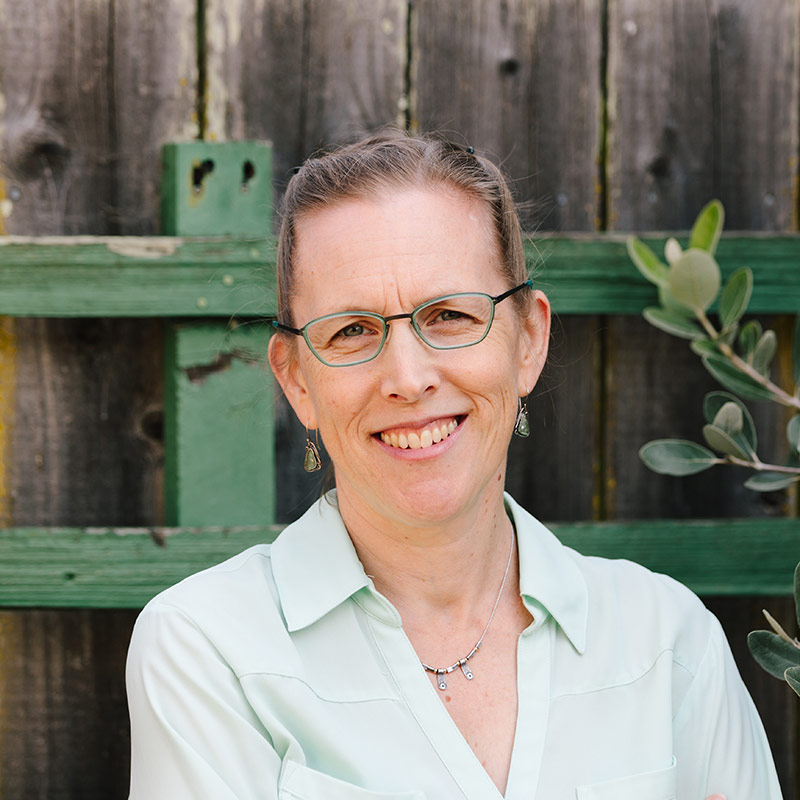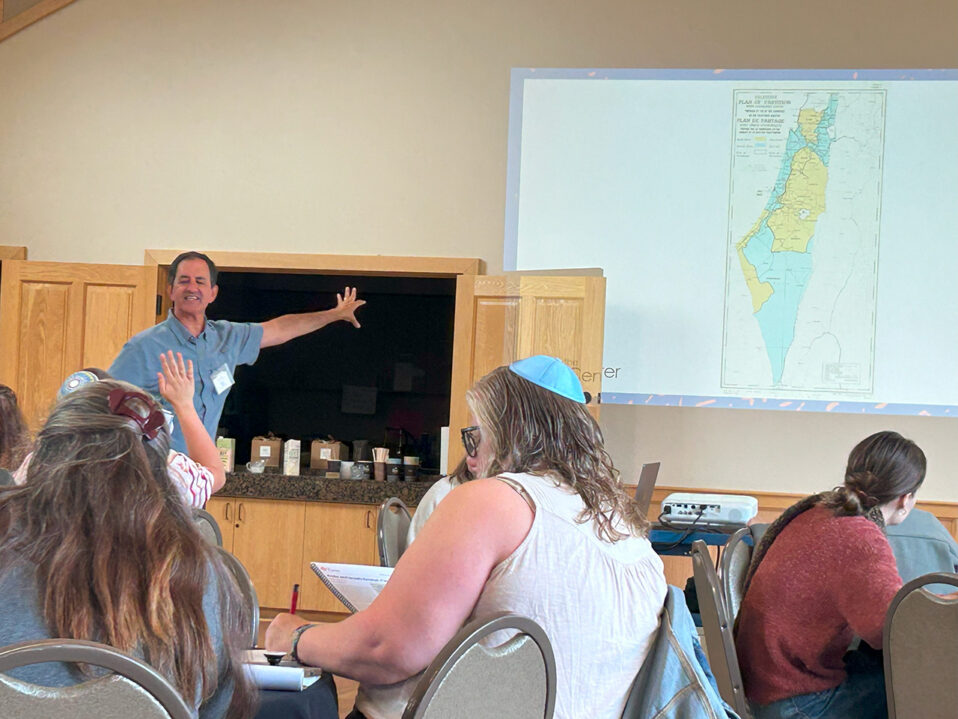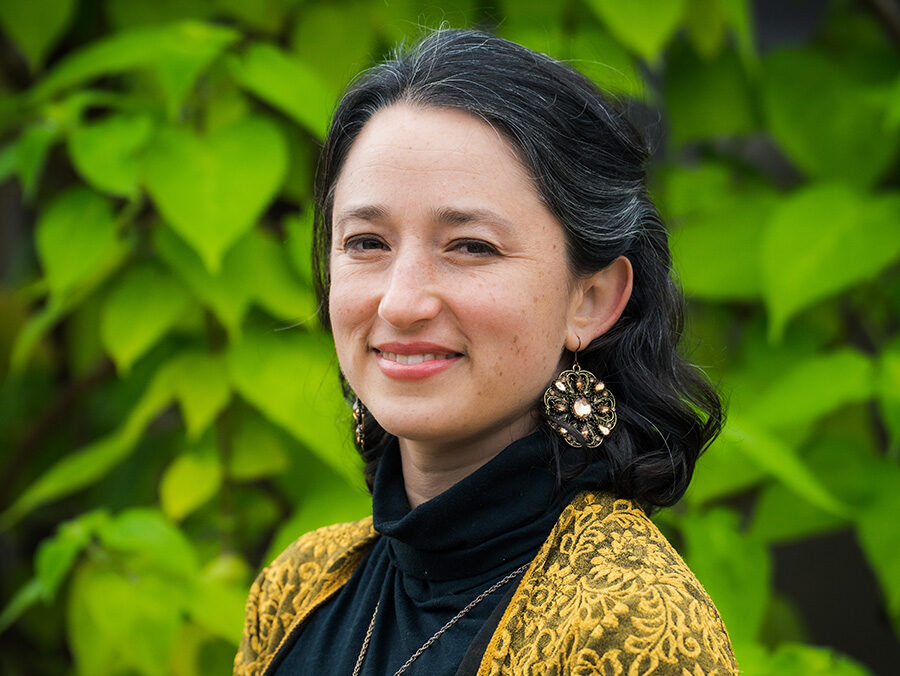With budget season approaching, it’s time to think about what we pay our classroom teachers.
by Jenni Mangel, Dana Sheanin, and Joel Abramovitz
A review of the national news or a walk through school hallways quickly reveals the stark national shortage of teachers in our country. Any synagogue education director can tell you that learning spaces in the Jewish community are not immune from this phenomenon. Educational leaders often identify the low rates of pay endemic in Jewish education as a primary obstacle to hiring and retaining qualified teachers. In our conversations with educators in the Bay Area, staff at Jewish LearningWorks hear people regularly suggest that it is just as often the evening and weekend hours, expensive commutes, and work in an environment devoid of respect and appreciation that causes educator vacancies and attrition in Jewish communal spaces.
The congregational school model as it exists today evolved in the 20th century when a) teaching 2-6 hours a week could bring in a meaningful secondary income for a family, or b) teachers could more easily cobble together multiple teaching gigs. Fast forward to a post-pandemic economy and we find many more homes requiring a dual income (especially in the Bay Area) to make ends meet. Educators further express difficulty in finding work that aligns with both their schedule and economic needs and desires.
At Jewish LearningWorks, we are often asked by local congregations for a communal compensation analysis — some way for congregations to gauge if their difficulty in hiring teachers is, in part, because of what they are paying. However, when we’ve collected salary and pay scale data in the past we’ve learned that comparing congregational pay scales is like comparing dreidels and hamantaschen. Some congregations pay a monthly salary, some pay hourly. Some pay for professional development, transit subsidy, sick time, prep time, and some don’t. Pay can also vary widely according to the economic resources available to a congregation, itself a function of geographic community and membership size.
As part of our core strategic work to strengthen the talent pipeline in Jewish education and communal service, we’ve come to believe the issue isn’t only the money. For example, plenty of congregational education directors tell stories about offering someone a significant pay increase and being turned down. We are not the only ones paying attention to this. A recent CASJE study (October 2021) looking at career trajectories of Jewish educators substantiates this idea by bringing attention to the “educator’s calling,” their sense of mission and purpose, that engages and keeps people in the field:
“When the work is challenging and the pay and benefits can be modest, it is hard to sustain a career without such commitments. A sense of mission is an important contributor to educator retention….Jewish educators are not, then, uninformed or unrealistic about the conditions under which they work, or the demands made of them. It just seems that they’re sufficiently committed to the ultimate purposes of their work that they don’t let these challenges deflect them from their path.” page 10
If we accept the notion that educators are spiritually called to work in the field of Jewish education, it becomes even more important that we consider who they are and how to honor them for their service from a place of derekh eretz, of walking our values. Because of the short 2–6 hours per week, congregational education tends to attract mission driven people who are:
- Under-employed and people looking for extra income.
- “In-betweeners” – college students, recent graduates, new parents, recently retired empty nesters, or rabbinic students looking to develop new skills, connect with community, or fill a time void.
- Avocational teachers – people looking to supplement their regular full time job with meaningful service to the community.
- Congregants – people devoted to Jewish life and care about sharing their passion with the next generation
Recognizing that we need more teachers, we must also work towards teacher retention. To do so we must actively support teachers in consistent, healthy, and long term ways. We should help them build deep and long-lasting relationships with children, parents, and other members of the congregation. By cultivating their knowledge and skill development, we can enhance their job satisfaction and, ultimately, the quality of teaching and learning in our programs.
A Forbes article (July 2022) reminds us that Gen Z (born after 1997) members of our community are the future leaders of our community. They value flexibility; mental health support; diversity, equity, inclusion; and career growth. We can learn from Gen Z and invite people from all generations to join the teaching ranks in our education programs by seeking ways to:
- Enable teachers to teach to their strengths.
- Encourage job satisfaction by recognizing and responding to the needs of the individuals who are partners in our work.
- Diversify our teaching staff by hiring people of all generations, genders, and backgrounds to reflect our diverse communal makeup.
- Cultivate a work environment that actively fosters mutual respect and personal growth.
- Support teachers to participate in high quality professional development opportunities that help them improve their craft and prepare for their future.
- Collaborate with nearby education programs to hire teachers and model the reality that we are all living and working in the same Jewish communal landscape.
- Ensure that teachers are treated with respect and care by parents, clergy, students, and others in the congregation.
It is essential that our organizations do not take advantage of a teacher’s spirit, generosity, or talent. When in doubt, we should err toward paying a teacher a higher salary, offering non-monetary benefits, and budgeting accordingly to these values. If we want to honor the notion of educator calling, we see an imperative to advocate for culture change in our education programs that accommodates our teachers as learners, while paying them equitably and building up a new generation of teachers for our children.
If we’ve learned anything from the past three years of the pandemic, it’s that it’s hard to know what work and life will look like in another five years. We are all in a constant process of invention and reinvention to strengthen our communal model. It is incumbent on current Jewish communal leadership to adapt our systems to accommodate our teachers and learners, rather than expect them to fit themselves and their families into existing models.
1 Article specifically addresses the experience of educators working in congregational education settings. Usually 2-6 hours per week at a single synagogue. We recognize that pay throughout the Jewish community is often inadequate for teachers in early childhood and day school settings too. To learn more about this, see CASJE’s work (August 2021) on the Career Trajectories of Jewish Educators in the United States, Compensation: The Salaries and Benefits of Jewish Educators.
2 To understand some of the nuance of housing prices in the Bay Area see Lauren Help Thiser’s San Francisco Chronicle article This is the ‘crazy’ average income needed to buy a home in the Bay Area today (April 4, 2022).

Jenni Mangel (Director of Educational Leadership) and Dana Sheanin (CEO) work together at Jewish LearningWorks. They are happy to collaborate with Jewish LearningWorks Board Member Joel Abramovitz on this essay. Joel also serves the community as the Senior Family Educator at The Kitchen in San Francisco.






